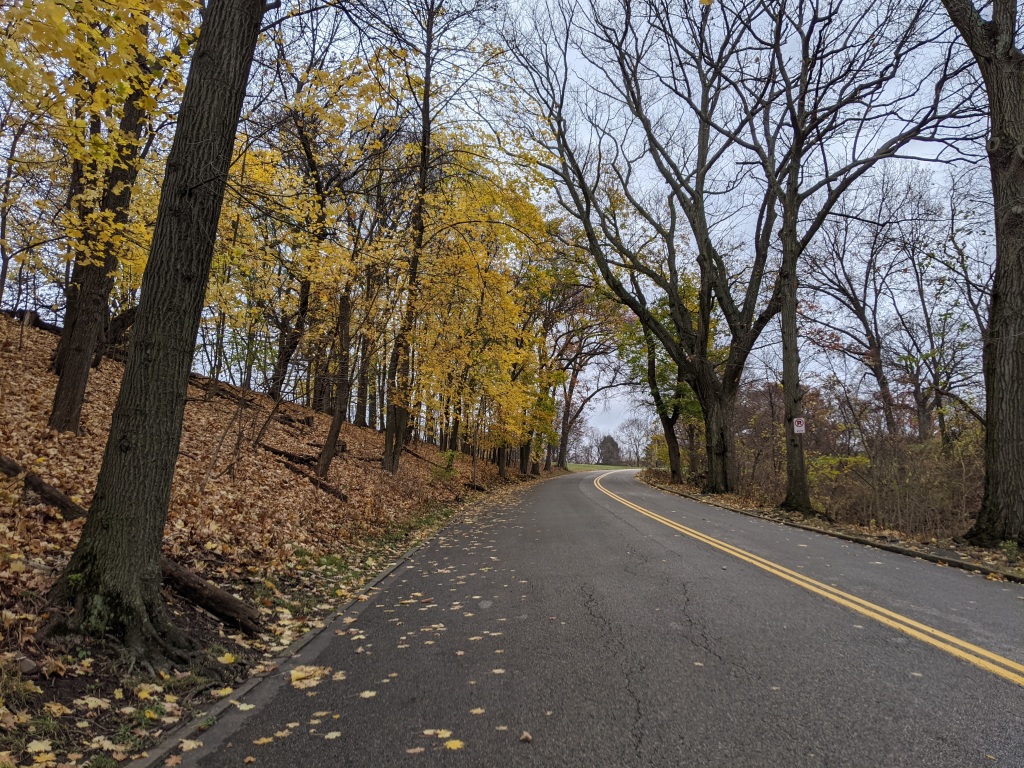
24 November 2020
By now all the leaves have fallen in the Pittsburgh area. Or have they? There are still a few trees with bright yellow leaves in Schenley Park — Norway maples.
As their name implies Norway maples (Acer platanoides) were imported from Europe where their native range extends further north than Pittsburgh. Our short November days are the same length as those they experience in October back home. The sun will be up for 9 hours and 39 minutes today, 24 November, in western Pennsylvania. That’s the day length on 21 October in Oslo, Norway.
Right now our native trees are bare or retain just a few yellow leaves at the very top (tuliptrees) or dried brown leaves overall (oaks and beeches).
Because non-native plants are out of synch with our seasons late November is the best time of year to see them in the landscape.
The trees with leaves are aliens!
Fun fact: Pittsburgh’s latitude is very far south of Scandinavia. Did you know we are on the same latitude as Madrid, Spain?
Quiz: What North American city is nearly the same latitude as London, England? The answer is surprising.
(photo by Kate St. John)
There is no US city at the latitude of London. London (51.1) is North of Bellingham Washington (48.7) and South of Ketchikan Alaska (55.3).
Mary Ann, correct! There is no U.S. city but there is one in Canada.
Actually, I found a tiny town in the Aleutian Islands in Alaska, Adak, that is at 51.8 (it is listed as the southernmost city in Alaska).
Calgary, AB?
Yes!
Both a pretty, an informative, and a fun post today, Kate!!! Thanks.
Thanks.
Europe is warmer because of the Gulf Stream ocean current that brings all the warm water up from our tropics to their northern latitudes. That warm water creates a more humid environment in the north, which falls as snow. When that snow builds up over thousands of years, we get an ice age.
Kate,
Your explanation of why Norway maples retain their leaves after native species have dropped theirs was very interesting and makes a lot of sense.
It made me wonder, why do some deciduous trees retain their leaves almost all winter?
Craig, the answer, which is quite intriguing, is in this long article about marcescence at northernwoodlands.org: Why do some leaves persist on beech and oak trees well into winter?